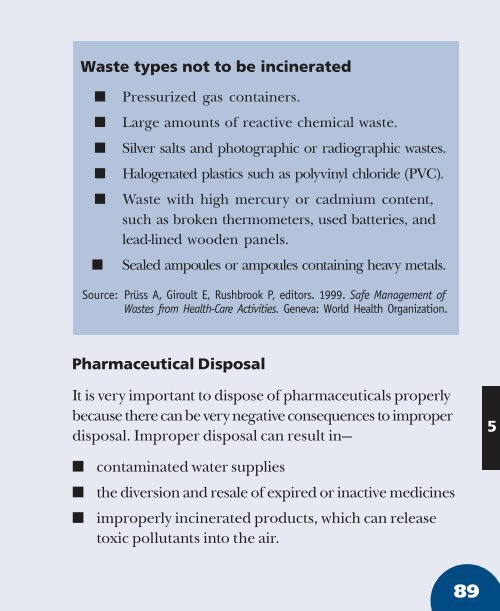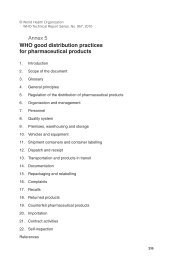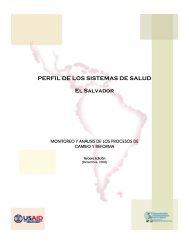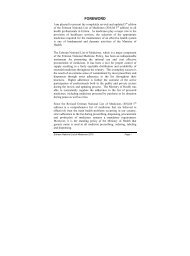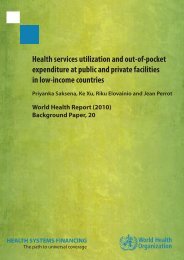Guidelines for the Storage of Essential Medicines and Other Health ...
Guidelines for the Storage of Essential Medicines and Other Health ...
Guidelines for the Storage of Essential Medicines and Other Health ...
You also want an ePaper? Increase the reach of your titles
YUMPU automatically turns print PDFs into web optimized ePapers that Google loves.
Waste types not to be incinerated■■■■■■Pressurized gas containers.Large amounts <strong>of</strong> reactive chemical waste.Silver salts <strong>and</strong> photographic or radiographic wastes.Halogenated plastics such as polyvinyl chloride (PVC).Waste with high mercury or cadmium content,such as broken <strong>the</strong>rmometers, used batteries, <strong>and</strong>lead-lined wooden panels.Sealed ampoules or ampoules containing heavy metals.Source: Prüss A, Giroult E, Rushbrook P, editors. 1999. Safe Management <strong>of</strong>Wastes from <strong>Health</strong>-Care Activities. Geneva: World <strong>Health</strong> Organization.Pharmaceutical DisposalIt is very important to dispose <strong>of</strong> pharmaceuticals properlybecause <strong>the</strong>re can be very negative consequences to improperdisposal. Improper disposal can result in—5■■■contaminated water supplies<strong>the</strong> diversion <strong>and</strong> resale <strong>of</strong> expired or inactive medicinesimproperly incinerated products, which can releasetoxic pollutants into <strong>the</strong> air.89


